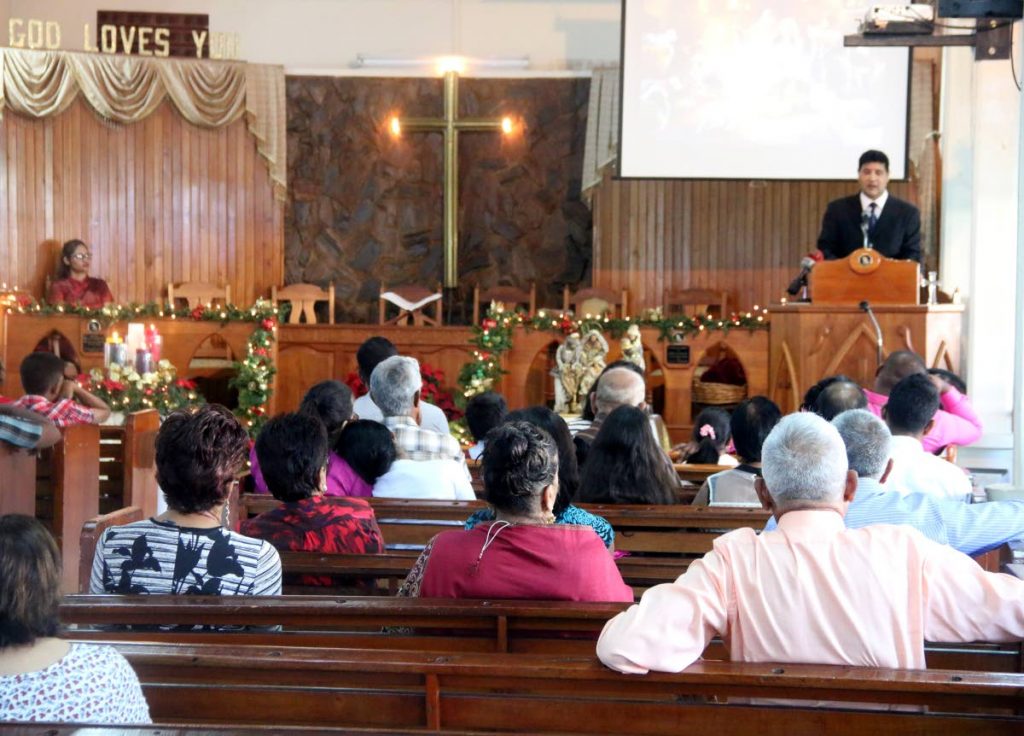Presbyterians challenged to lead fight against racism

THE Presbyterian Church has been called upon to lead the fight against racism in TT.
A chorus of voices has been speaking out against racism, including the head of State, President Paula-Mae Weekes.
The editorial in the Trinidad Presbyterian's September edition has also joined the chorus of voices calling on Trinidadians and Tobagonians to rise above racism.
It called on the church, which is involved in education, to take a proactive approach and to lead the change that must happen, as there is no place for racism here.
It commented, “As unfortunate as it is, racism and all its synonyms continue to pop up from time to time to strain the relationship among citizens of cosmopolitan TT. The latest flare-up coming after the 2020 general election betrays an underlying vein of racism that exposes itself during high emotional events. There is no place for racism here. Sadly, it shames us who heed the Psalmist injunction, 'Behold how good and pleasant it is for brethren to dwell together in unity.'"
In her Independence Day message, President Weekes also expressed disgust and dismay at the level of racism displayed by supporters of both the government and opposition in the lead-up to the August 10 general election and its immediate aftermath.
The editorial referred to the late US anti-racist campaigner Dr Martin Luther King Jr, who identified racism as one of the three evils in the world, the others being poverty and war.
“If we take the time to examine the effect of racism and bigotry on people we would soon understand how dangerous they can be for humanity. It would be useful for us to read of how racism affects human beings in other parts of the world to understand why we must condemn it and stamp it out completely.”
It advanced that the horror stories coming out of the slave trade and human trafficking, the Holocaust and the apartheid system in South Africa “should unite us against acts of racial discrimination.”
Describing racial animosity as the cause of the 1994 genocide in Rwanda, when 800,000 citizens were massacred in 100 days of terror, the editorial observed, “That was 26 years ago and the fight against racism continues even today in the USA – the bastion of democracy.
“In the aftermath of these tragic events the cry from right-thinking people around the world was, 'never again.' Yet it happened again and again. Where have we failed?”
Leaning on the vision of Jesus Christ, the late South African anti-apartheid leader Nelson Mandela stated, “No one is born hating another person because of the colour of his skin, or his background, or his religion. People must have learnt to hate, and if they can learn to hate, they can be taught to love for love comes naturally from the heart than its opposite.”
The editorial urged, “As a church involved in education, we would have the opportunity to make the case for values education at the proposed discussion on curriculum transformation in schools. We must embrace this opportunity to lead the change. If we are to have a safe, equitable and creative space we must develop a sense of right and wrong that is trustworthy and ethical. We do this within a framework that is not cold, lifeless nor legalistic, but with inspiration, compassion and understanding. It is up to all of us.”


Comments
"Presbyterians challenged to lead fight against racism"